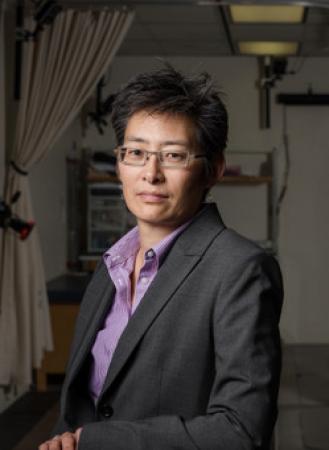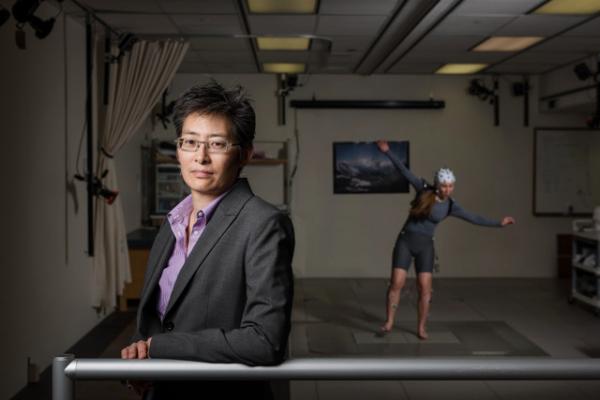The National Institutes of Health (NIH) has awarded Lena Ting, professor in the Wallace H. Coulter Department of Biomedical Engineering at Emory and Georgia Tech, a five year, $2.6 million grant. This grant is a renewal of her previous research spanning more than a decade and marks the transition from basic to clinical science where her lab will translate their unique neuromechanical approaches to study mechanisms of balance impairments that lead to falls for those with Parkinson’s disease (PD).
The grant is also a collaboration with professor Stuart Factor, director of the Movement Disorders Clinic at the Emory Brain Health Center, Madeleine Hackney, a research health scientist in the Atlanta VA and the Department of Medicine at Emory, and Erin Buckley and Lucas McKay, both assistant professors in Coulter Department of Biomedical Engineering.
Ting’s research will use combined experimental and computational approaches to systematically isolate the causal linkages and interactions between muscle rigidity, muscle activity, and balance ability in Parkinson’s disease. Her goals are to identify the causal role of rigidity on impaired balance in PD, to validate novel optically-based and clinically-feasible methods to measure muscle rigidity during standing, and to establish a computational model of neuromechanical balance to simulate how multiple mechanisms interact to cause balance impairments. This research will facilitate the identification of treatment targets for the rational development of rehabilitation and other therapies for balance impairments across a variety of neurological movement disorders.
“It was surprising to me that the effects of muscle rigidity on balance is so poorly understood,” said Ting. “People with Parkinson’s disease have both muscle rigidity and postural instability, yet the effects of muscle rigidity have not been considered as contributing to balance impairments. One reason is that we can’t yet measure low levels of muscle activity reliably, nor predict how it would alter movement. In our research, we will address both of these problems.”
The Neuromechanics Lab based at Emory and directed by Ting, uses a broad range of techniques from neuroscience, biomechanics, rehabilitation, robotics, and physiology to discover new principles of human movement. Her lab’s basic science findings have facilitated advances in understanding movement disorders and in identifying mechanisms of rehabilitation. In 2016, The American Institute for Medical and Biological Engineering (AIMBE) inducted Ting into its College of Fellows. The College of Fellows is comprised of the top two percent of medical and biological engineers in the country.
Media Contacts:
Walter Rich
Communications Manager
Wallace H. Coulter Department of Biomedical Engineering
at Georgia Tech and Emory
Media Contact
Walter Rich
Keywords
Latest BME News
Jo honored for his impact on science and mentorship
The department rises to the top in biomedical engineering programs for undergraduate education.
Commercialization program in Coulter BME announces project teams who will receive support to get their research to market.
Courses in the Wallace H. Coulter Department of Biomedical Engineering are being reformatted to incorporate AI and machine learning so students are prepared for a data-driven biotech sector.
Influenced by her mother's journey in engineering, Sriya Surapaneni hopes to inspire other young women in the field.
Coulter BME Professor Earns Tenure, Eyes Future of Innovation in Health and Medicine
The grant will fund the development of cutting-edge technology that could detect colorectal cancer through a simple breath test
The surgical support device landed Coulter BME its 4th consecutive win for the College of Engineering competition.









